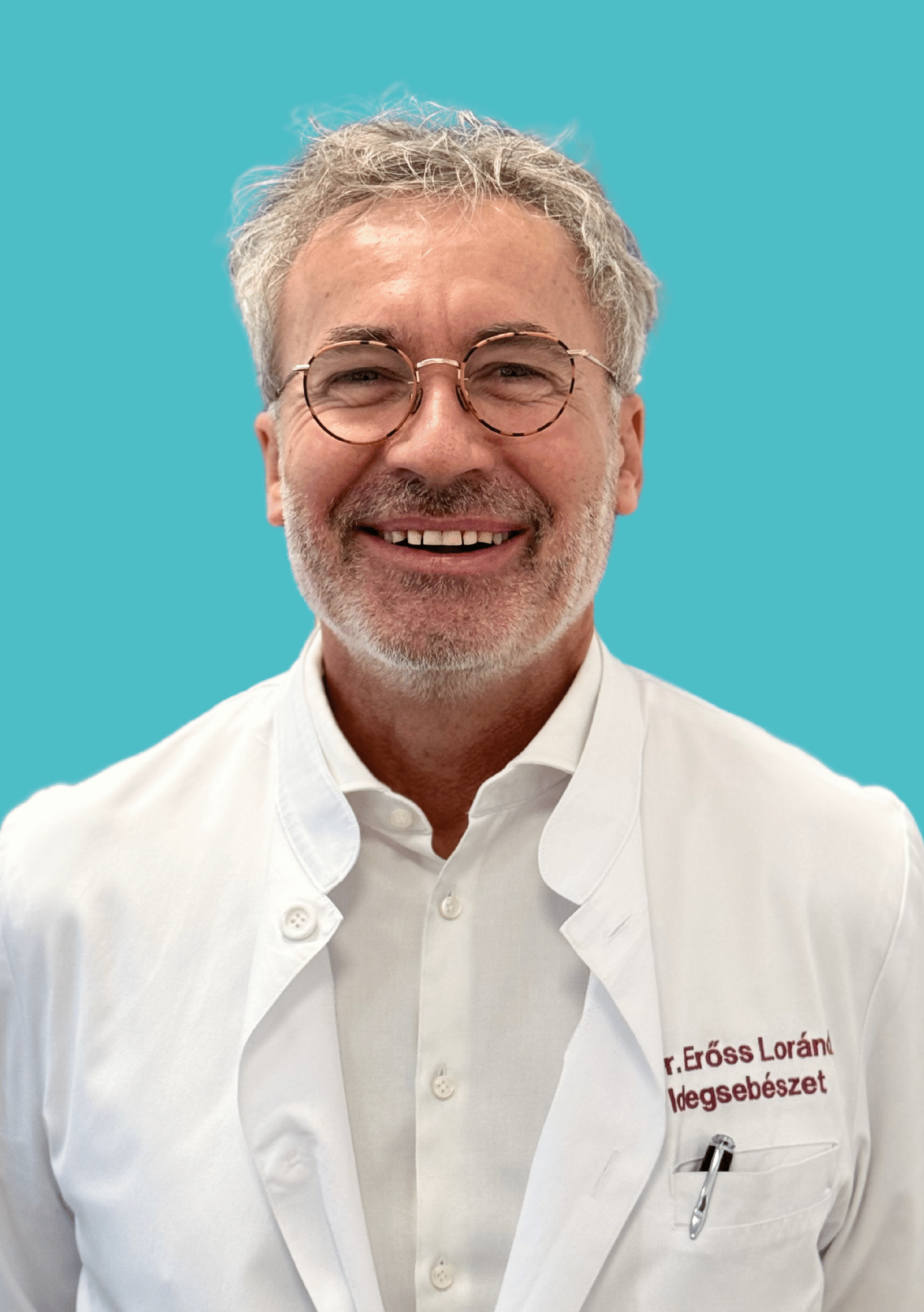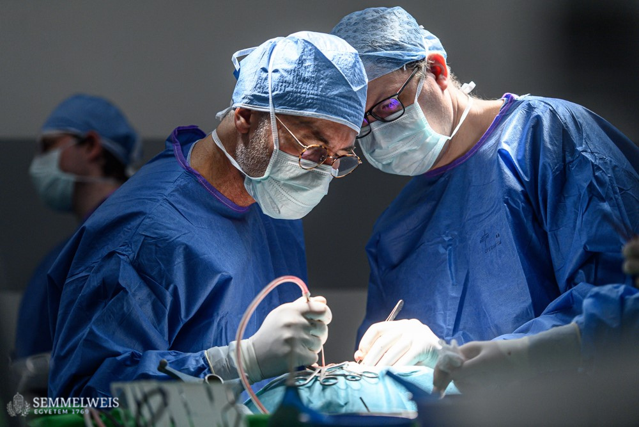Seeking neurosurgical treatment abroad is a major decision for patients and families. Whether driven by the search for a top specialist, advanced technology, or cost savings, the process can feel overwhelming. One principle stands above all: the experience and expertise of the neurosurgeon is the single most important factor in achieving a good outcome. In fact, studies show that higher-volume, more experienced neurosurgeons are associated with improved patient outcomes, including lower complication rates and better recoveries. This guide will help you compare neurosurgery standards across different regions and, most importantly, evaluate a surgeon’s credentials and track record anywhere in the world. We’ll also debunk common medical tourism myths and set realistic expectations for your journey. Our goal is to present clinically accurate information in an easy-to-understand way – so you can make an informed, confident choice.
The #1 Factor: Surgeon Experience and Expertise
When it comes to neurosurgery, the person performing the operation matters more than almost anything else. Neurosurgical procedures (whether it’s removing a brain tumor, repairing an aneurysm, or operating on the spine) are extremely delicate and complex. An experienced neurosurgeon who has successfully done many similar procedures gives you a significant advantage. High surgical volume and specialist expertise correlate with better outcomes in neurosurgery. In practical terms, this means you should prioritize the surgeon’s qualifications and track record over other factors like location or facility amenities.
Key reasons why surgeon experience is paramount:
- Precision and Skill: Neurosurgeons refine their technique over years of training and practice. A veteran surgeon can navigate complex anatomy and sudden challenges during surgery more calmly and effectively than someone less seasoned. For critical brain or spine operations, this precision can make the difference in removing a tumor safely or avoiding neurological damage.
- Better Outcomes: Research in surgical care has consistently found that who performs the surgery can strongly influence results. For example, a review of neurosurgery outcomes concluded that higher surgeon and hospital case volumes are associated with lower mortality, fewer complications, and shorter hospital stays. Experienced surgeons have encountered a wider array of scenarios and complications, so they’re often better prepared to handle whatever happens.
- Multidisciplinary Leadership: Top neurosurgeons often lead teams of specialists (anesthesiologists, neurologists, nurses, rehabilitation experts). Their expertise can attract better team members and coordinate multidisciplinary care. An expert surgeon will know the latest protocols and when to involve other specialists, which improves safety.
- Patient Confidence: Knowing you are in the hands of a renowned surgeon can provide peace of mind, which is valuable for patients and families under stress. While no surgery is without risks, trust in your surgeon can alleviate anxiety. Many patients seeking treatment abroad specifically look for internationally recognized neurosurgeons or “centers of excellence” built around a particular doctor’s expertise.
Bottom line: No matter how enticing a medical tourism package or hospital may sound, always investigate the neurosurgeon’s background first. The best hospitals will usually have no issue arranging a consultation (even virtual) with the surgeon so you can discuss their experience with your specific condition. If any provider downplays the importance of your surgeon or cannot give details on who will be operating, consider it a red flag. Prioritize surgeon quality above all – it’s the cornerstone of a successful neurosurgical outcome.
Neurosurgery Around the World: Comparing Standards and Systems
Neurosurgery is a truly global field – world-class care can be found in many regions, but healthcare systems and standards do vary. The United States and Western Europe have long been leaders in neurosurgical innovation, but other regions (from Eastern Europe to Asia and the Middle East) have rapidly advanced their capabilities. Below is a comparison of neurosurgery standards and healthcare features across various regions:
| Region | Neurosurgical Care & Healthcare Highlights |
|---|---|
| United States |
Elite expertise and technology: Home to renowned centers like Mayo Clinic, Cleveland Clinic, Johns Hopkins, and others at the forefront of neurosurgery. Surgeons undergo rigorous training and board certification (the American Board of Neurological Surgery, ABNS) which ensures a high standard of skill and knowledge. Innovative treatments: The U.S. leads in cutting-edge techniques and research in neurosurgery, often offering the newest surgical modalities (e.g. advanced robotics, intraoperative MRI). Cost and access: The trade-off is cost – neurosurgery in the U.S. is often the most expensive in the world. However, the quality of care and outcomes often justify the expense for many patients. Insurance coverage is complex and typically needed for Americans, while international patients usually pay out-of-pocket or via agencies. |
| Western Europe |
High standards with universal healthcare: Countries like Germany, UK, France, and Switzerland have excellent neurosurgical services. Training is highly standardized, and many surgeons hold qualifications such as Fellow of the European Board of Neurological Surgery (FEBNS), reflecting a harmonized high level of proficiency across Europe. Advanced facilities: Major European hospitals are equipped with state-of-the-art technology and adhere to strict healthcare quality regulations. Many are publicly funded, but they often have private wings or international patient departments. Costs and wait times: For citizens, universal healthcare covers most neurosurgical care (with possible wait times for elective cases). For international patients, Western Europe can offer slightly lower costs than the U.S. without compromising quality. For example, Germany’s hospitals provide world-class neurosurgery at more affordable prices than the U.S., thanks to efficient healthcare management. |
| Eastern Europe |
Emerging centers of excellence: Eastern European countries (e.g. Poland, Czech Republic, Hungary, Turkey) are increasingly popular for medical travelers seeking neurosurgery. Many clinics in this region boast modern infrastructure, advanced neuroimaging, and intraoperative monitoring capabilities, often at a fraction of Western European costs. Training and expertise: A number of top neurosurgeons in Eastern Europe trained in Western Europe or the U.S., bringing back expertise. English is commonly spoken by medical staff who frequently work with international patients. Quality variation: The quality can vary more widely in this region. There are excellent JCI-accredited hospitals and also more basic facilities. It’s crucial to choose accredited hospitals or well-known urban medical centers to ensure high standards. Overall, Eastern Europe offers a mix of high-quality care and affordability, making it an attractive option if you vet the provider carefully. |
| Asia (East & South) |
World-class hubs in Asia: Asia is home to some of the most advanced neurosurgical centers. Japan is known for efficient, ultra-high-standard care and technological innovation in surgery. South Korea has become a global leader in neurosurgery and medical tourism, with modern hospitals (many internationally accredited) and surgeons often trained abroad. Singapore offers Western-quality healthcare with English-speaking staff. India has also emerged as a neurosurgery hub, combining affordability with quality – its top hospitals are internationally accredited and staffed by highly skilled neurosurgeons, many with overseas fellowships. Technology and innovation: Leading Asian hospitals invest heavily in cutting-edge technology like neuronavigation systems, robotic surgery, and stereotactic radiosurgery. In Japan and Korea, for instance, advanced minimally invasive techniques and meticulous surgical planning are standard, resulting in impressive success rates. Cost and language: Costs in Asia vary: Japan and Singapore are closer to Western costs (though still typically lower than U.S.), while India, Thailand, or Malaysia can be significantly cheaper. Importantly, lower cost does not equal low quality – often it’s due to lower labor and administrative costs. Many Asian hospitals have international patient departments with English-speaking coordinators, translators, and even concierge services. Southeast Asian facilities, in particular, are known for offering “medical tourism” packages that include luxury recovery accommodations and tourism assistance alongside high-quality neurosurgical care. |
| Israel |
Advanced Western-level care: Israel’s healthcare system is advanced by international standards, and the country is known for medical and technological innovation. Hospitals such as Sheba Medical Center (Tel Hashomer) and Hadassah Medical Center are internationally recognized; in fact, Sheba is consistently ranked among the world’s best hospitals. Expertise: Many Israeli neurosurgeons are trained in the U.S. or Europe and maintain professional ties with major Western medical centers. This means they are often board certified in multiple jurisdictions and up-to-date with the latest techniques. Israel has specialists for complex fields like epilepsy surgery, pediatric neurosurgery, and neuro-oncology, contributing to outcomes on par with top U.S./EU institutions. Healthcare system: Israel offers universal healthcare to its citizens, and a strong private sector coexists to serve medical tourists. Care in Israel is not the cheapest option, but it is somewhat more affordable than the U.S. while delivering Western-equivalent quality. International patients are welcomed through dedicated programs, and most staff speak English. |
Summary of global standards: Excellent neurosurgeons can be found in many countries. The U.S. and Western Europe generally offer cutting-edge technology and highly regulated training; Asia (Japan, Korea, Singapore, etc.) and Israel provide a combination of innovation and quality often rivaling the West; Eastern Europe and parts of the Middle East offer competent care at lower cost, though with more variability. Regardless of region, your mission is to identify the specific surgeon and hospital that meet top standards. In the next section, we’ll detail how to evaluate a neurosurgeon’s credentials and the hospital’s quality, no matter where they are.
How to Evaluate a Neurosurgeon’s Credentials and Track Record
Choosing an international neurosurgeon requires the same diligence you would use at home – perhaps even more. Here are key factors and steps to help you vet a neurosurgeon’s qualifications and outcomes:
- Board Certification and Licensing: Verify that the neurosurgeon is board certified or similarly credentialed in their country. Board certification means the doctor has completed specialized neurosurgical training and passed rigorous exams. For example, U.S. neurosurgeons are certified by the American Board of Neurological Surgery (ABNS), indicating they meet high standards of knowledge and skill. In the UK and many Commonwealth countries, neurosurgeons earn FRCS (Fellow of the Royal College of Surgeons) with a specialization in neurosurgery. Across Europe, look for qualifications like FEBNS (Fellow of the European Board of Neurological Surgery), which signifies a surgeon has passed a pan-European exam to harmonize quality in neurosurgery. Always ensure the surgeon is licensed to practice in the country where the surgery will occur – this usually goes hand-in-hand with board certification. Many countries have online databases or medical councils where you can confirm a doctor’s license and specialty status. Tip: In the U.S. and Canada, you can use the ABMS “Is My Doctor Certified?” tool or the Royal College directory, respectively; in the UK, check the General Medical Council (GMC) Specialist Register for neurosurgery. Verifying board certification is considered an essential step in confirming a physician’s expertise.
- Surgical Volume and Outcomes: Ask how many procedures like yours the surgeon has performed, and if available, what their outcomes have been. While every patient is different, a surgeon who performs a high volume of the specific surgery you need (for example, 200+ microdiscectomies, or dozens of acoustic neuroma resections per year) tends to have honed their technique. As mentioned earlier, higher surgical volume correlates with better outcomes in many neurosurgical cases. Don’t be shy about inquiring: a reputable surgeon will not be offended by questions about their experience. You can frame it politely, like “How many of these operations do you do in a typical year, and what have you observed in terms of success rates or complication rates in your patients?” Some surgeons and hospitals publish their outcome statistics or have them available on request – for example, a neurosurgery department might have data on their tumor surgery survival rates or average patient functional recovery scores. Additionally, consider the hospital’s volume: a high-volume neurosurgery center with a dedicated neuro-ICU, neuroradiology, etc., provides a supportive environment that can improve safety. If you cannot get clear answers about volume or outcomes, that could be a warning sign. Prefer surgeons who are transparent about their track record.
- Specialization and Expertise: Neurosurgery is a broad field – some neurosurgeons sub-specialize in certain areas. Make sure the surgeon you’re evaluating has expertise relevant to your condition. For instance, if you need a complex skull base tumor removed, you’d want a neurosurgeon known for neuro-oncology or skull base surgery (perhaps one who did a fellowship in that sub-field or leads a brain tumor program). If you have a spinal issue, you might seek a neurosurgeon with a spine surgery focus, or if it’s a pediatric case, a pediatric neurosurgeon. Check the surgeon’s clinical focus on their CV or hospital website bio. Also look at their research and publications: have they published papers or contributed to studies in their area of expertise? A quick search on PubMed or Google Scholar for the doctor’s name can show you if they’ve authored research on your condition or advanced neurosurgical techniques. Published research is not a requirement for a skilled surgeon (some superb surgeons are full-time clinicians), but it often indicates that the physician is engaged with the latest developments and recognized by peers. It also helps you verify the doctor’s full name and credentials. For example, seeing that Dr. X co-authored a journal article on spine surgery techniques with colleagues from a renowned institute adds credibility. Moreover, involvement in research or teaching (being on faculty at a medical school) suggests a commitment to excellence. Tip: Look for memberships in professional societies (e.g. the World Federation of Neurosurgical Societies, the Congress of Neurological Surgeons, etc.) and invitations to speak at international conferences – these are all positive signs of a well-regarded specialist.
- Training, Fellowships, and Affiliations: A surgeon’s education and training path can tell you a lot. Find out where the neurosurgeon did their residency and any fellowship training. Top neurosurgeons often have fellowship experience at leading hospitals or have spent time training abroad. For instance, an Eastern European neurosurgeon who completed a fellowship in the U.S. or Germany may have had exposure to very advanced surgical methods. Many overseas doctors who treat international patients are in fact trained in North America, Europe, or Australia. This is not uncommon – as noted by one analysis, most doctors catering to international patients received education or certification in Western countries. You can usually find training info in the doctor’s bio. Hospital affiliations are equally important: check if the surgeon is affiliated with a major hospital or academic medical center. Being a senior consultant at a well-known hospital (or a professor at a university medical school) generally means the doctor has passed numerous quality filters. It also implies that the hospital has extensive facilities, multidisciplinary teams, and an infrastructure for complex care. If a surgeon works at a JCI-accredited hospital or one partnered with reputable Western institutions, that’s a strong positive sign. (Some international hospitals are officially affiliated with names like Johns Hopkins or Cleveland Clinic – meaning they collaborate on training or standards.) Even if not formally affiliated, many top foreign hospitals hire surgeons who have worked or trained at prestigious U.S./UK centers. Review any information about the surgeon’s professional associations too – for example, are they part of the national neurosurgical association in their country (or even a board member)? All of these factors help paint a picture of credibility.
- Hospital Accreditation and Facilities: No matter how great a neurosurgeon is, they need a high-quality facility and team to support them. When evaluating an international option, check the hospital’s accreditation and reputation. One gold standard is Joint Commission International (JCI) accreditation. JCI is the international arm of the group that accredits U.S. hospitals, and over 600 hospitals worldwide have met its stringent quality and safety criteria. A JCI-accredited hospital adheres to international best practices for surgical care, anesthesia, infection control, and so on – this gives you assurance that the facility itself won’t be a weak link. Other certifications include ISO 9001 (quality management) and accreditation by global health organizations or local regulatory bodies. Research whether the hospital has a dedicated neurosurgery intensive care unit (neuro-ICU), advanced imaging (MRI, CT, angiography) on-site, and modern operating theaters. You can often find this info on the hospital’s website or brochures (look for mentions of technology like intraoperative MRI or Gamma Knife if relevant to your needs). Moreover, see if the hospital has experience with international patients: an international patient services department, translators, and concierge coordinators are all good signs that the hospital is accustomed to meeting global patient needs. Lastly, consider the overall infrastructure and support services: Does the hospital provide rehabilitation or physiotherapy for recovery? Do they have a good track record in the specific neurosurgical procedure you require? A bit of homework on the hospital will complement your evaluation of the surgeon. In summary, choose a top-notch surgeon in a top-notch hospital – both factors matter. An excellent surgeon in a low-quality facility may not be able to deliver the best outcome, and vice versa.
By systematically researching the points above – board certification, experience, specialization, training, and hospital quality – you can confidently assess a neurosurgeon anywhere in the world. It may help to create a checklist and document what you find for each candidate surgeon. Don’t hesitate to ask questions directly; reputable providers will appreciate that you are making an informed decision. Remember that verifying credentials is a critical part of ensuring you’re in capable hands. Next, we will address some myths about going abroad for care and what you should realistically expect in your international treatment journey.
Common Misconceptions About International Healthcare (and the Realities)
Deciding to travel abroad for neurosurgery can raise a lot of questions and concerns. Unfortunately, the topic of “medical tourism” is sometimes shrouded in myths. Let’s clear up a few common misconceptions:
- Myth #1: “Lower cost means lower quality.”
Reality: Lower treatment cost in another country is usually due to economic factors (labor costs, currency exchange), not necessarily inferior quality. In fact, many medical tourism destinations offer excellent quality care that rivals top U.S. hospitals, but at a fraction of the price. Research indicates that countries like Thailand, India, and others have been able to keep costs down mainly due to lower wages and administrative costs – not because of substandard care. These lower costs have actually fueled competition, pushing leading hospitals abroad to improve their services and technology to attract patients. Many private hospitals serving international patients use up-to-date methods and the latest medical technologies. In some cases, you might even find facilities abroad that are as good as or better than a typical hospital at home. For example, several top hospitals in Asia and Latin America boast cutting-edge surgical robots and imaging equipment on par with any Western institution. Additionally, a large number of overseas hospitals are internationally accredited (e.g. by JCI or ISO), which means they meet rigorous global standards for quality and safety. The key is doing your homework to find those accredited, well-equipped hospitals. Lower cost can go hand-in-hand with high quality if you choose wisely. Conversely, don’t assume an expensive hospital is automatically better – price isn’t the sole indicator of quality, which is why verification is so important. - Myth #2: “Surgeons abroad aren’t as qualified as in my country.”
Reality: Many doctors who treat international patients have training and credentials equal to those in the U.S. or Western Europe. It’s common for specialists in popular medical travel destinations to have done part of their education or fellowships in Western countries. According to the National Center for Policy Analysis, a significant number of overseas physicians are board-certified in the U.S. or hold internationally recognized qualifications. In fact, most doctors catering to foreign patients were trained in the United States, Canada, the UK, or Australia. These surgeons often maintain memberships in international neurosurgical societies and attend global conferences, staying current with advances. Furthermore, countries like India, Turkey, Mexico, etc., often have English-speaking doctors with impressive resumes. It’s also worth noting that some top U.S. hospitals actively collaborate with or even operate centers abroad – for example, Johns Hopkins and Cleveland Clinic have affiliations or partnerships with hospitals in the Middle East and Asia. Such affiliations typically involve training exchanges and quality audits, so the standards remain high. The takeaway is: excellent surgeons are not confined to one country. By checking the credentials as we described earlier, you can find highly qualified neurosurgeons in many parts of the world. Don’t let outdated notions diminish the accomplishments of international doctors who may be leaders in their field. - Myth #3: “Medical tourism is only for minor or cosmetic procedures, not something as serious as neurosurgery.”
Reality: It’s true that medical travel became famous for cosmetic surgery and dentistry, but today it spans virtually all specialties – including complex neurosurgery. Medical tourism has evolved significantly in recent years, expanding into advanced fields like brain and spine surgery. Patients travel for cancer treatments, cardiac surgeries, organ transplants, and yes, neurosurgical procedures. There are globally renowned neurosurgical centers (as discussed in our region comparison) actively welcoming international patients. For example, patients have traveled to Germany for advanced microsurgical tumor removal, to Thailand for minimally invasive spine surgery, or to India for affordable yet high-tech treatment of brain aneurysms. Of course, neurosurgery is never taken lightly – reputable programs will carefully evaluate international patients to ensure they are good candidates for travel and that they can be safely cared for. But it’s no longer uncommon for someone to cross borders to access a particular neurosurgeon’s expertise or a therapy not available at home. As long as you plan properly and choose a trusted facility, pursuing neurosurgery abroad can be as viable as having it domestically. In short, don’t dismiss medical tourism for neurosurgery – the global landscape of healthcare makes it possible to receive world-class neurosurgical care outside your home country. - Myth #4: “If I go abroad for surgery, I’m on my own for follow-up care.”
Reality: Continuity of care is a critical concern, and responsible providers know this. The best hospitals for international patients have systems to ensure proper follow-up, whether through detailed documentation to hand off to your local doctors or through telemedicine follow-ups with the foreign surgeon. Before you commit to treatment, ask the hospital what their policy is on post-operative follow-up and dealing with any complications once you return home. Many will provide a full medical report in English and a discharge plan you can share with doctors back home. Some might offer a few days of inpatient recovery and a follow-up visit before you fly back. You should also plan proactively: arrange for a local physician (perhaps your neurologist or primary care doctor) to be in the loop about your trip and ready to assist when you’re back. It’s true that if an issue arises after you return, you may need to seek care locally, but having all your records and a clear treatment summary will help your home-country doctors step in. Additionally, telehealth has made it easier to stay in touch with overseas providers. Many international surgeons will schedule video check-ins and are open to communicating with your hometown physicians. So, while follow-up for international care is logistically more complex, you will not be abandoned if you choose a reputable program. The key is to ensure a clear follow-up plan is in place – something both you and the foreign provider agree on. (One common misconception is that no surgeon will touch you back home if you had surgery abroad; in reality, any doctor will care for a patient in need, though you should be prepared with documentation. Having insurance or contingency funds for any emergency is also wise, since legal recourse or free-of-charge corrections abroad might be limited.) - Myth #5: “Traveling for surgery is like a medical vacation.”
Reality: It’s important to set realistic expectations – undergoing neurosurgery abroad is not a vacation, even if it occurs in a destination country. You will need to focus on your health and recovery. Travel itself poses challenges: long flights pre- or post-surgery need to be planned with medical advice (e.g. risk of blood clots, need to stay mobile, etc.). After a major neurosurgery, you may not be in any shape to sightsee or enjoy tourist activities; you might be in the hospital for days and then resting in a hotel. While many medical tourism providers offer assistance with logistics and some patients do choose pleasant locations to recuperate, your priority must be recovery. Expect to remain in the destination for a recommended period after surgery – often a week or two – so that the surgeon can do follow-up checks before you fly home. This ensures you are stable for travel. Bring a companion if at all possible; having a family member or friend to support you can be invaluable in a foreign environment. They can help communicate if there’s a language issue, assist you physically after surgery, and manage paperwork or emergency needs. Also, be prepared for possible extended stays: if an unexpected complication delays your return, you’ll need flexibility. In short, think of it as a serious medical journey rather than tourism. The “tourism” aspect is mostly about receiving care in a foreign country, not about leisure. That said, a comfortable environment can aid recovery – some patients choose destinations like a seaside clinic or somewhere known for hospitality. Just keep your expectations realistic: your focus will be on healing, and any cultural experiences are a bonus if your condition allows.
These myth-busters highlight that with proper planning and choice of provider, medical tourism can be safe and effective. The stereotypes (that it’s all low-quality or only for minor issues) are outdated. Thousands of patients successfully travel each year for complex procedures – but the successful ones are usually those who did thorough research and planned for both the best and worst-case scenarios.
Planning for a Safe and Successful Neurosurgery Abroad
Finally, let’s discuss some practical guidance and realistic expectations for medical travel in the context of neurosurgery:
- Rigorous Research: Use trusted, reliable sources when researching hospitals and surgeons. Look at hospital websites, international accreditation listings (JCI’s website lists accredited organizations), and reputable patient forums or testimonials. Be cautious of websites that are purely marketing; cross-verify any claims (for example, if a hospital says “ranked #1 in neurosurgery,” see if you can find that ranking from an independent source). Consider obtaining a second opinion from a neurosurgeon in your home country or via an international telemedicine service (some organizations like Cleveland Clinic offer remote second opinions). This can confirm that the proposed treatment plan is sound and might even identify surgeons they know abroad.
- Consult Your Home Doctors: Involve your current neurologist, neurosurgeon, or primary physician in the conversation. They may have connections or knowledge about centers of excellence internationally. At the very least, they should give input on whether it’s medically advisable for you to travel given your condition. They can also help with obtaining copies of all your medical records and imaging, which you’ll need to share with the overseas team.
- Communication and Language: Ensure that you will be able to communicate effectively with your care team abroad. If you don’t speak the local language, confirm that English-speaking (or your language-speaking) staff and translators will be available. Most top hospitals that cater to international patients provide translators for major languages. Meet (virtually) with the neurosurgeon beforehand to confirm you can understand each other and that you feel comfortable. Clear communication is key for discussing symptoms, consent, and post-op instructions.
- Logistics – Travel and Stay: Plan the logistics meticulously. Work with the hospital’s international patient office if they have one; they often assist with visa letters, airport transfers, and hotel or rehabilitation facility arrangements. Make sure to schedule enough time to arrive before the surgery (to rest after travel and go to pre-op appointments) and to stay after surgery for initial recovery. Discuss travel risks and timing with the surgeon – for example, flying too soon after brain surgery could be risky, so get a recommended waiting period from your doctor. If your procedure carries a risk of needing ICU care or extended rehab, factor that in. It’s wise to have a contingency fund or travel insurance that covers medical complications, in case you need to extend your stay or get special travel accommodations (like a medical evacuation, though that’s rare).
- Finances and Insurance: Know how you will pay for the treatment and what the costs include. Many international hospitals offer package prices for self-paying patients. Ensure you understand what’s covered – surgeon fees, hospital stay, anesthesia, medications, etc. Ask about costs of possible complications or reoperations (will the insurance or package cover if you need extra days in the hospital?). Most traditional health insurance plans in the U.S. and Europe do not cover elective procedures overseas, but some do if it’s an accredited facility or if you have a special rider. Check with your insurer. There are also medical travel insurance policies that can cover certain scenarios. Financially, be prepared to pay the hospital directly; many accept wire transfers or credit cards. Keep all receipts and documentation – not only for your own records but also for any follow-up care when you return (your local providers may want to know exactly what was done and what implants or devices were used).
- Safety and Quality Checks: As emphasized, stick to accredited hospitals and experienced surgeons. Ensure that the facility follows standard safety protocols. One easy check: see if they follow the WHO Surgical Safety Checklist or equivalent – many hospitals will mention adhering to international patient safety goals (like proper surgical site marking, infection prevention measures, etc.). During your correspondence, notice the professionalism of the process – do they require a thorough medical history and imaging before accepting you for surgery? That’s a good sign because it means they’re assessing you carefully. If any place seems to “guarantee” a cure or pressures you to put down a deposit without answering your questions, be very cautious. A trustworthy provider will focus on whether you’re a fit for the treatment, not just on marketing to you.
- Realistic Expectations for Outcome: While seeking the best care improves your odds, keep in mind that outcomes can never be 100% guaranteed. A top surgeon is not a miracle worker; what they offer is the best chance at a good result. Discuss candidly with the neurosurgeon what outcome metrics matter to you – for example, neurological function, pain relief, tumor control, etc. Understand the potential complications and their rates. Knowing this helps you mentally prepare and also plan (for instance, if there’s a 1% risk of a serious complication that could require longer hospitalization, have a plan for who will stay with you or how to communicate back home). Setting realistic goals also means planning your rehabilitation. Ask if the hospital offers rehab services or if they can recommend exercises/physio for when you return home. Many patients continue their recovery at home with local therapists, using a plan provided by the overseas team.
- Post-Op Follow-up Plan: As discussed in Myth #4, ensure you and the surgical team have a follow-up strategy. Get copies of your operative report, discharge summary, and any imaging or test results. These will be crucial for your doctors at home. Clarify who to contact if you have questions after you’re back home – is there a patient coordinator or nurse you can email, or can you message the surgeon directly? Nowadays, some hospitals have patient portals accessible internationally. Even after you return, keep your overseas neurosurgeon’s contact info handy in case your local doctors want to discuss your care with them (doctor-to-doctor communication can be very useful). Having this safety net will give you peace of mind.
By taking these practical steps, you can greatly increase the chances that your international neurosurgery experience will be positive. Thousands of patients each year navigate this process successfully, achieving outcomes that might have been out of reach otherwise – whether it’s affording the procedure, accessing a specialist, or getting it done sooner than locally possible. Careful planning and realistic expectations are your allies.
Conclusion: Empowering Your Decision with Knowledge
Choosing an international option for neurosurgical treatment is a significant decision that requires careful consideration of many factors. We’ve highlighted that above all, the neurosurgeon’s expertise is paramount – this is the cornerstone of quality care. We’ve also seen that world-class neurosurgery is not confined to one country or region; excellent care can be found in the U.S., Western Europe, Asia, the Middle East (Israel and beyond), and elsewhere, provided you know how to identify it. By rigorously evaluating credentials, verifying board certifications and hospital accreditations, and understanding a surgeon’s track record, you can sift through the options and find a provider you trust with your or your loved one’s life.
We’ve debunked common myths that might have caused undue fear. International healthcare, when approached wisely, is not about taking unnecessary risks – it’s about expanding your choices. The reality is that many international hospitals adhere to the same standards of safety and excellence you would expect at home. The key is due diligence: use the guidance in this article as a checklist and don’t hesitate to seek out multiple opinions.
Our tone throughout has been like that of a reliable clinic handout, because we want you to feel informed and reassured. At the end of the day, the decision is very personal. Factors like being far from home, travel stress, and financial considerations must be weighed against the potential benefits of going abroad (such as accessing a particular expert or treatment, or reducing costs). There is no one-size-fits-all answer – but with knowledge and preparation, you can make the choice that best fits your medical needs and circumstances.
If you do choose to pursue neurosurgical treatment internationally, know that you are not alone in that journey. Many organizations, patient networks, and hospital international offices are experienced in guiding patients like you. Lean on those resources. Ask questions until you are satisfied. A trustworthy medical team will welcome your questions – it shows that you are an engaged participant in your care.
In closing, remember that your goals – or your family member’s goals – are what drive this process. Whether it’s curing a condition, improving quality of life, or getting a second chance, keep those goals in focus. Use this guide to help build a team (surgeon, hospital, local doctors, family support) that will work together across borders to achieve the best possible outcome. With the right information and careful planning, you can approach international neurosurgical treatment with confidence and hope, knowing you’ve done everything possible to stack the odds in your favor. Your health is worth the effort of finding the very best care, wherever in the world it may be.
Meet Our Team
Prof. Dr. Loránd Erőss
Chief Neurosurgeon, Semmelweis University
One of Europe’s leading neurosurgeons in functional neurosurgery and pain therapy, Prof. Dr. Erőss leads the neurosurgical program featured in this article. His team welcomes international patients seeking world-class care, second opinions, or advanced surgical solutions.
Are you looking for help to find a reputable international neurosurgery clinic?
If you or someone you love have been referred to neurosurgery and concerned about your best best options, we can guide you to the best alternative – without compromising safety, expertise, or outcomes.
Lead by Prof. Erőss, our international neurosurgery coordination center in Budapest helps patients access:
✅ Advanced neurosurgical treatments in top centers
✅ World-class experts in the field of neurosurgery
✅ Transparent, affordable pricing
✅ Fast-track scheduling and full multilingual support

Prof. Dr. Loránd Erőss
Chief Neurosurgeon, Semmelweis University
One of Europe’s leading neurosurgeons in functional neurosurgery and pain therapy, Prof. Dr. Erőss leads the neurosurgical program featured in this article. His team welcomes international patients seeking world-class care, second opinions, or advanced surgical solutions.
Are you looking for help to find a reputable international neurosurgery clinic?
If you or someone you love have been referred to neurosurgery and concerned about your best best options, we can guide you to the best alternative – without compromising safety, expertise, or outcomes.
Lead by Prof. Erőss, our international neurosurgery coordination center in Budapest helps patients access:
✅ Advanced neurosurgical treatments in top centers
✅ World-class experts in the field of neurosurgery
✅ Transparent, affordable pricing
✅ Fast-track scheduling and full multilingual support
Get a second opinion from our expert team
Upload your MRI, CT scans, and relevant medical documents for a no-obligation evaluation:
Need help uploading or have questions?
We’ll respond within 24 hours with your treatment options and a preliminary evaluation.
References (Sources):
- Gupta S. et al. (2024). Mapping the global neurosurgery workforce. Part 1: Consultant neurosurgeon density. J Neurosurg, 141(1):1-9. (Key finding: high-income countries average ~2.44 neurosurgeons per 100k people vs. 0.12 in low-income; underscores global disparity).
- ABMS. “Verify Certification.” American Board of Medical Specialties – Certification Matters (accessed 2025). (Board certification is essential for confirming a physician’s expertise).
- Davies JM et al. (2015). Volume-outcome relationships in neurosurgery. Neurosurg Clin N Am, 26(2):207-218. (Surgeon/hospital volume strongly correlates with improved neurosurgical outcomes).
- Health-Tourism.com. “Myths about medical tourism.” (Common myths debunked: low cost often due to labor costs, many overseas doctors have Western training, hundreds of hospitals abroad are JCI-accredited).
- MedicalTourism.com. “What Are the Best Countries for Neurosurgery?” (Comparison of destinations: U.S. – innovation but high cost; Germany – top quality at lower cost; Japan, S. Korea – advanced and efficient; India – high quality at lowest cost).
- MedicalTourism.com. “Top Destinations for Comprehensive Brain Surgery.” (Emphasizes choosing based on expertise and technology; highlights U.S., Germany, India, S. Korea as leading destinations).
- Medical Tourism Magazine. “Best Clinics for Medical Tourism and Advanced Neurosurgical Monitoring.” (Notes that Eastern Europe offers advanced neurosurgery at lower cost; Southeast Asia hospitals provide English-speaking staff and deluxe recovery care).
- Trade.gov (2023). “Israel – Healthcare.” U.S. Commercial Service Country Guide. (Confirms Israel’s healthcare is highly advanced; many Israeli doctors trained in U.S.; facilities are modern and tech-forward).
- Joint Commission International (JCI). Accredited Organizations List (2025). (JCI accreditation is considered a global “gold standard” for hospital quality and patient safety; hundreds of hospitals worldwide have this certification).
(All sources accessed and verified for accuracy as of 2025. Citations provide supporting details for key points in this guide.)






